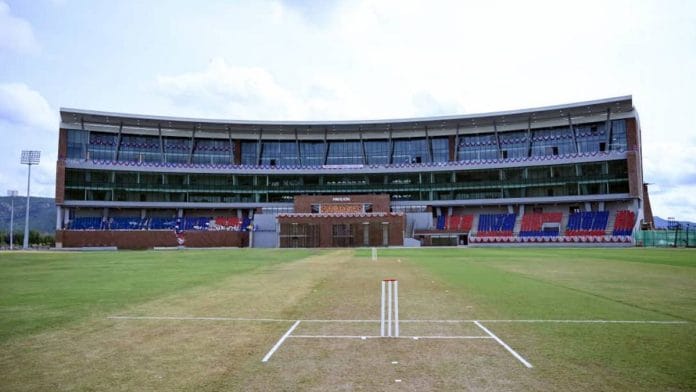New Delhi: Match-fixing has all the elements of cheating as players indulging in it have the dishonest intention to deceive viewers and sponsors into believing that a fair game would be played. With this argument, the Board of Control for Cricket in India (BCCI) wants the Supreme Court to hold that match-fixing is a crime, can be probed under penal law and the accused charged with the offence of cheating.
Last week, the board, seeking the Supreme Court’s intervention in a pending criminal appeal, filed an application before it acknowledging the prevalence of corrupt practices in cricket.
It categorically stated in its plea that match-fixing amounts to the criminal offence of cheating as defined under Section 318 of the Bharatiya Nyaya Sanhita (BNS) and Section 420 of the erstwhile Indian Penal Code (IPC). Under BNS, cheating is punished with imprisonment up to 3 years, 5 years or 7 years, depending on the severity of the offence.
“The prevalence of corrupt practices in cricket matches has an adverse impact on the game and undermines the integrity of the sport,” stated the BCCI’s application, urging the SC to hear the board in a pending case where the Karnataka government challenged a state high court order that quashed a cheating case registered pursuant to a match-fixing complaint.
In its 2022 decision in the matter, the Karnataka High Court had held match-fixing as an act of indiscipline and mental corruption, but noted that since there was no element of dishonest inducement, the act could not be equated with cheating. With this observation, the HC had quashed the cheating case registered against a Karnataka Premier League (KPL) team owner and others that stemmed from match-fixing and spot-fixing allegations in 2018 and 2019.
To prevent corrupt practices in cricket, the BCCI had in 2019 formulated and adopted an Anti-Corruption Code for participants. However, with its application, the BCCI now wants match-fixing to be declared a crime so that it can be investigated under the penal law.
It sought intervention in the pending appeal in the capacity of a cricket regulator, responsible for the game’s administration and anti-corruption enforcement.
The BCCI application draws support from the Law Commission of India’s 276th report titled ‘Legal Framework: Gambling and Sports Betting Including in Cricket in India’ which recommended that match-fixing and sports fraud should be specifically made criminal offences with severe punishment.
“In general, audience/spectators watch a sport with an expectation of a fair game. The investors/sponsors of a particular team or franchise make investment in various forms, anticipating increase of their brand recognition with the popularity of the team they are associated with,” the BCCI states.
The application explains at length how match-fixing is “cheating and dishonestly inducing delivery of property” under the BNS.
The specific legal standards required to meet the ingredients of cheating are: deception or deceiving a person; and fraudulent or dishonest inducement of a person to deliver any property to any person.
The BNS defines dishonesty as an act done with an intention to cause wrongful gain to one person or wrongful loss to another. Wrongful gain should have been through unlawful means of property to which the person gaining is not legally entitled to. To establish cheating, existence of fraudulent or dishonest intention from the inception is essential.
The BCCI’s argument is that by concealing prior arrangements of match-fixing between themselves, with a dishonest intention, players induce the spectators to spend money to buy tickets and sponsors to invest money in the teams.
Thus, the act is done with an intention to cause wrongful gain through dishonest means. Non-disclosure of relevant information would also be treated as a misrepresentation of facts leading to deception, the board has argued.
On what would constitute “delivery of property”—an essential ingredient needed to level the charge of cheating—the BCCI states the property in the act of match-fixing would be the money spent by spectators to watch the game and the money invested by sponsors in the league, teams, merchandise, etc.
“Thus, the act of match-fixing clearly constitutes an offence of cheating, as it attracts all the ingredients of cheating, i.e., deception, fraudulent or dishonest inducement, intentional inducement to do or omit anything causing damage or harm,” the BCCI submitted to the top court.
(Edited by Nida Fatima Siddiqui)






